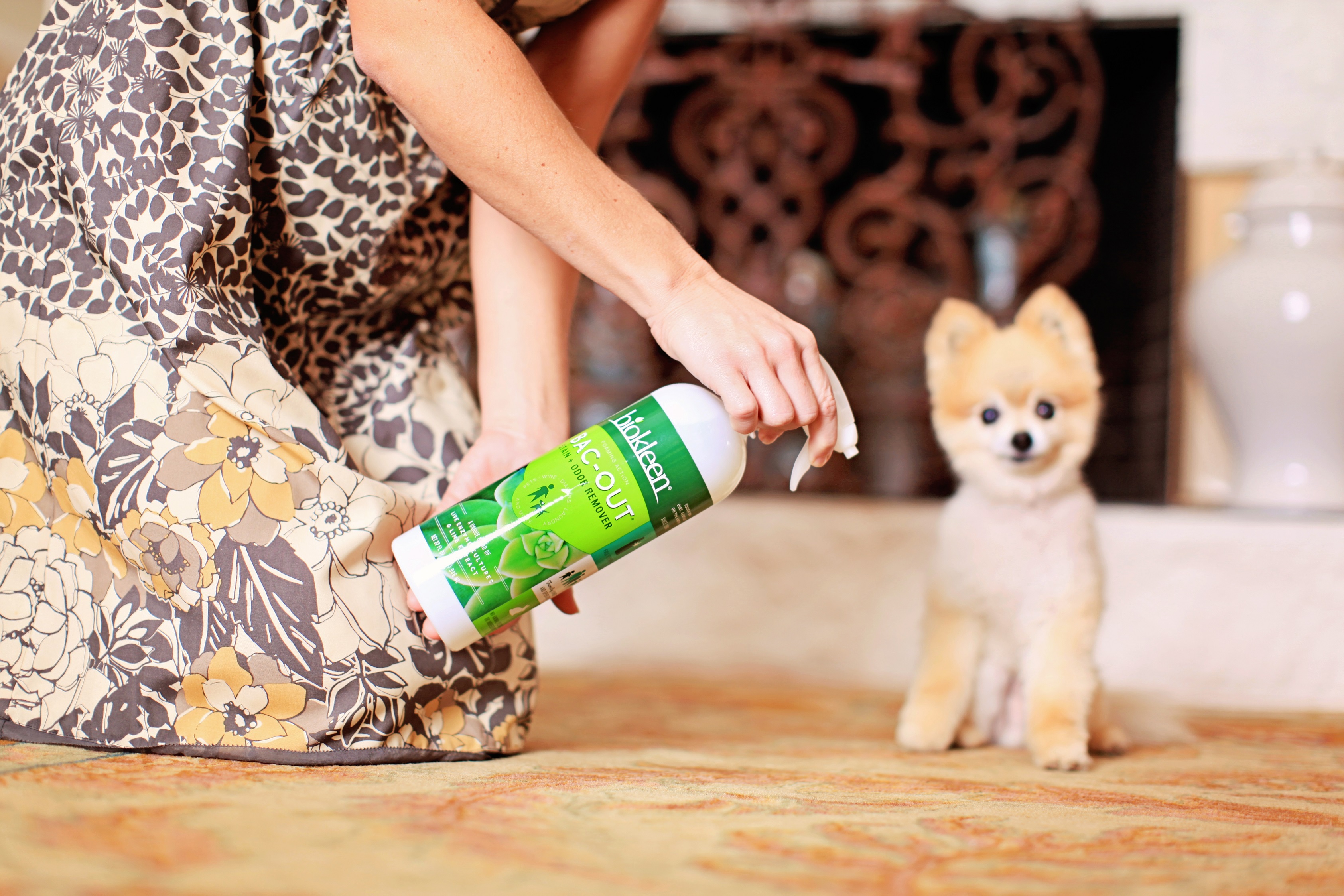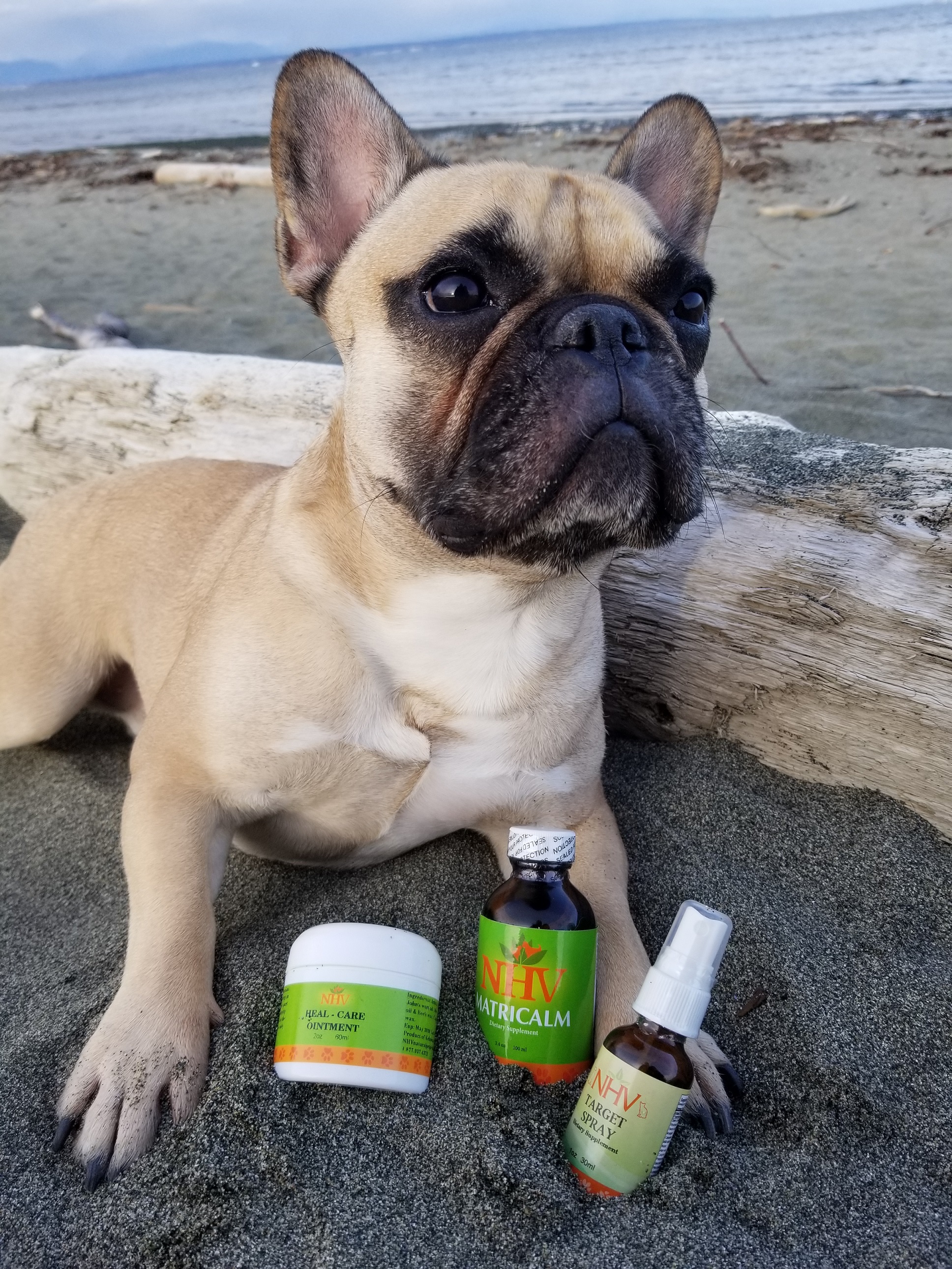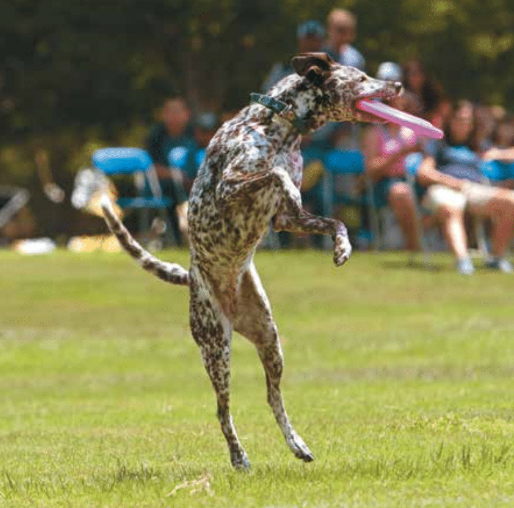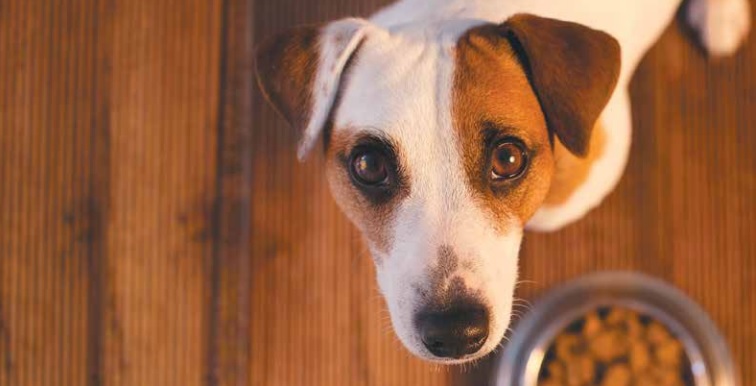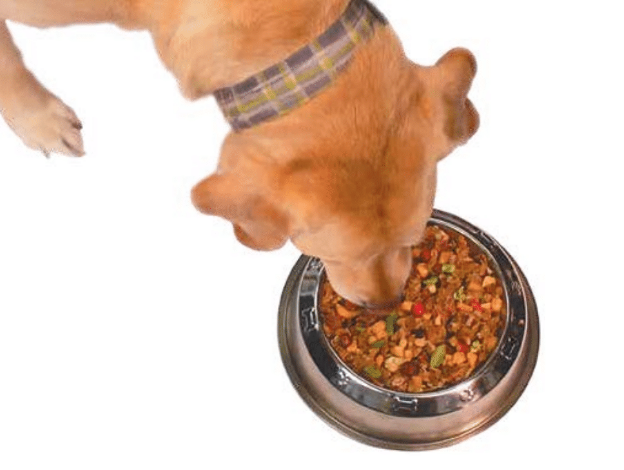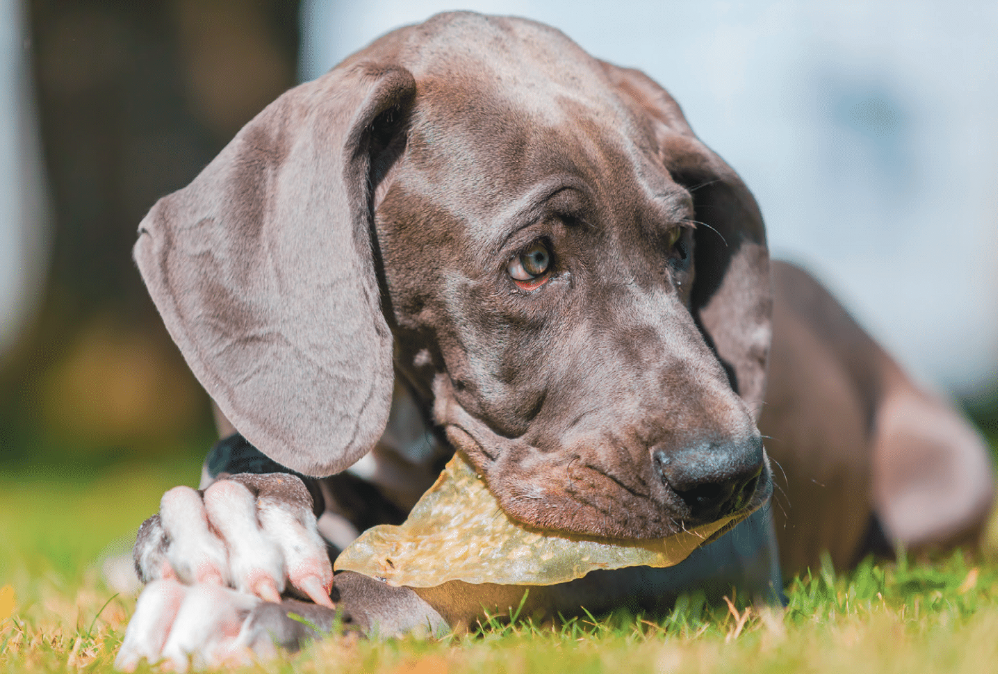Cleaning Solutions
Pet Age Staff //April 10, 2017//
By Eric Stenson
Harsh chemicals that leave toxic residues when cleaning your house can not only have a deleterious effect on your human co-inhabitants, but also on the four-footed members of your family. According to PetMD.com, bleach, ammonia, chlorine, formaldehyde, phenol and isopropyl alcohol can be very dangerous to dogs, causing lethargy, malaise, seizures, coma, vomiting, diarrhea and even death.
Anybody who has ever had a pet knows a few absolutes: fish got to swim, birds got to fly, and dogs and cats have got to make some horrendous messes. So, what is a responsible pet owner to do? Fortunately, there have been several companies that have developed natural-based cleanup solutions that can handle whatever Tabby and Fido can dish out, without causing harm to them or turning your home or yard into a mini Superfund site.
Biokleen of Vancouver, Washington, manufactures a number of products devoted to pet cleanup, mainly its Bac-Out line of stain and odor removers, multi-surface floor cleaners, fresh lavender fabric refreshers, fresh lemon thyme fabric refreshers and carpet and rug shampoos.
“First and foremost, our consumers are concerned about the safety of their pets,” said Ted Morgan, Biokleen’s director of marketing. “Knowing there’s a plant and mineral-based solution that works better than another product with hazardous ingredients, they’ll choose it every time.”
Biokleen’s Bac-Out products use enzyme-producing cultures, citrus extracts and plant-based surfactants to take out stains and odors caused by pets, according to the company’s website.
Morgan says that when the company is determining formulas, three factors are in play: only natural, plant and mineral-based ingredients can be used, it must work, and it must be safe for pets and families.
“The only side effect is your home will have a refreshing scent of natural essential oils,” Morgan said.
Going Natural
For retailers looking to increase their presence in this sector, Morgan suggests looking at the natural grocery channel, investigating products that have been successful in that marketplace and considering crossover brands that relate well in the pet realm.
“Products with that type of following are a natural fit,” he said.
According to Jenny Gilcrest, director of marketing for Irvine, California-based Skout’s Honor, the company produces non-toxic, plant-derived, biodegradable cleaners and deodorizers. She noted it takes pride in providing a day’s worth of meals for a shelter animal for each product sold.
“The pet stain and odor category is one that hasn’t seen much innovation in a long time,” Gilcrest said. “Being able to launch a brand with a fresh look and feel, while offering an all-around better, faster, stronger solution for pet owners is something we are very excited to have the opportunity to do.”
The key to Skout’s Honor’s products is its proprietary BioKore technology, Gilcrest said, which was developed in response to California’s Green Chemistry Initiative.
“We had played with the idea of using enzymes or oxygen cleaners in the past but ended up shelving the idea due to lackluster performance and the fear of being another ‘me-too’ product,” she said. “Suddenly, the building blocks of BioKore fell into our lap, and we found ourselves confronted with the ability to produce a unique and superior product.”
Gilcrest says the only complaint her company hears is that its cleaning products can be rather strong. She said BioKore allows the concentration of active product to be quite high. She suggests using them in a well-ventilated area. However, she said the strength does not make the products any less safe.
“The odor eliminator and litter box deodorizing, in particular, are no more harmful to a furry family member than pool water,” she said.
Support of specialty retailers is a key part of Skout’s Honor’s efforts to promote its products, including training, educational and marketing materials (including shelf talkers), and product sample programs.
“Growth in natural products is much higher than the industry average, and everything is going there eventually, whether it be through government regulation or customer demand,” Gilcrest said. “Retailers who do not start to grow their natural product presence soon will be behind the curve when we hit the tipping point.”
Simple Science LLC of Edina, Minnesota, makes VetriCure products, which feature a litter box sanitizer, a pet area disinfectant and a wound care spray. Its products eschew harsh chemicals and are designed to emulate the immune systems of the animals themselves, according to Ron Mills, vice president of sales.
“Our pet area disinfectant can be used to clean up after a trip outdoors or accidents throughout the house,” he said. “It’s also great for cleaning up after raw-food feedings, as it’s food-surface-contact safe and kills E. coli, Listeria and Salmonella.”
What Owners Want
It’s easy to see why natural, nontoxic cleanup solutions have become popular among customers who seek stronger odor and stain control, said Karl Gerstner, co-owner of Beowoof, an independent pet supply store in Hoboken, New Jersey. He stocks Nature’s Miracle and Skout’s Honor cleaning products.
Gerstner says that a common refrain he hears from customers is that they try to clean pet messes with window cleaner or bleach, but the cat or dog often goes back and urinates or soils the same spot again and again.
“They don’t work well enough,” he said of these traditional household products. “Everyone wants something pet safe, child safe—organic, natural solutions. They want something that works really well.”
Hopefully, most of the time, Rover makes it outside as intended to do his business. You still have to clean up after him. That’s where Veejay Patell comes in. He is director of operations for BioDOGradable Bags in Orange County, California, which manufactures completely compostable and degradable waste disposal bags.
A plastics engineer with 30 years of experience, Patell grew increasingly interested in sustainability as he became more concerned about how plastic bags depended on oil extraction and polyethelene production, were subject to limited recycling opportunities and had only seconds of usefulness, yet languished in landfills for hundreds of years.
His bags are made of maize flour, not starch, which he says is compostable but not completely biodegradable.
“It feels completely different—it’s not a plastic bag,” Patell said of his product. “It smells natural. It’s like a popcorn smell.”
If the bags don’t make it into a compost pile, they still don’t pose the hazards traditional plastic bags can wreak.
“Even if it goes into the ocean, it will fully degrade,” he said. “It will not disturb ocean animal life.”
His product is available online and through small- and medium-size pet supply stores in southern California. He has big plans for his little bags, hoping to expand his technology into cat litter bags and yard bags.
“We visit local events and expos, and educate consumers on the benefits of sustainable products,” he said. “It’s so important for them to see that there are environmentally friendly alternative ways of disposal that minimize impact.”
